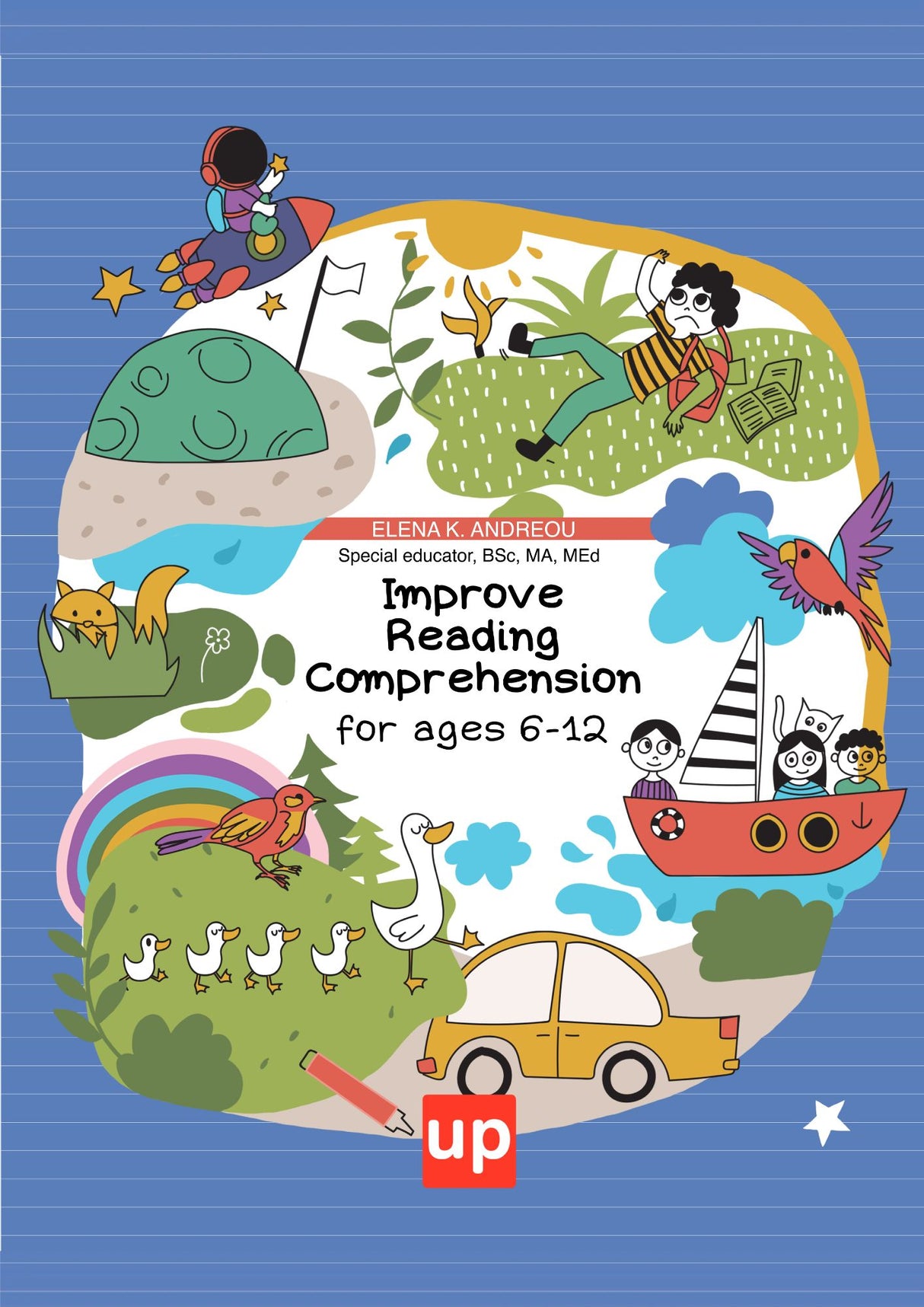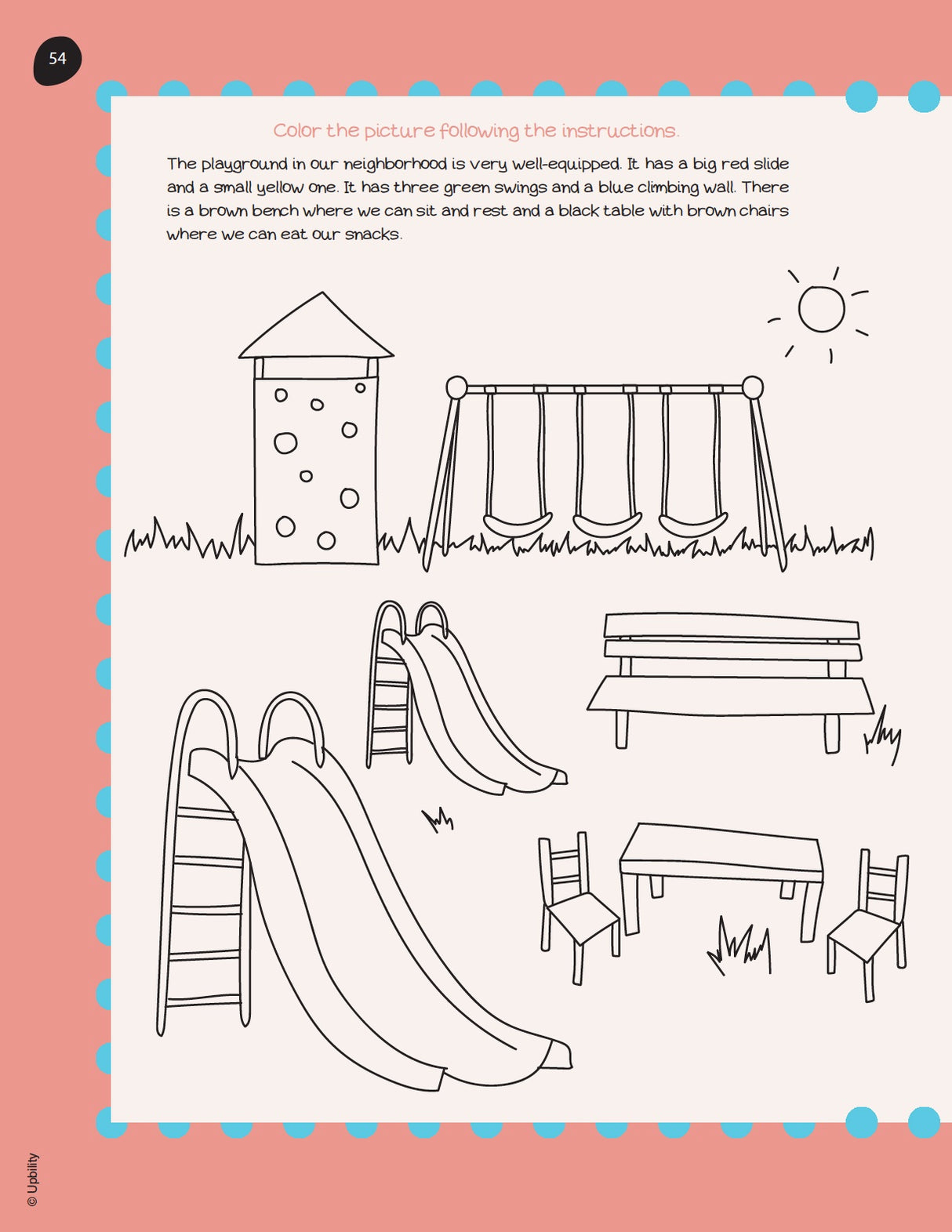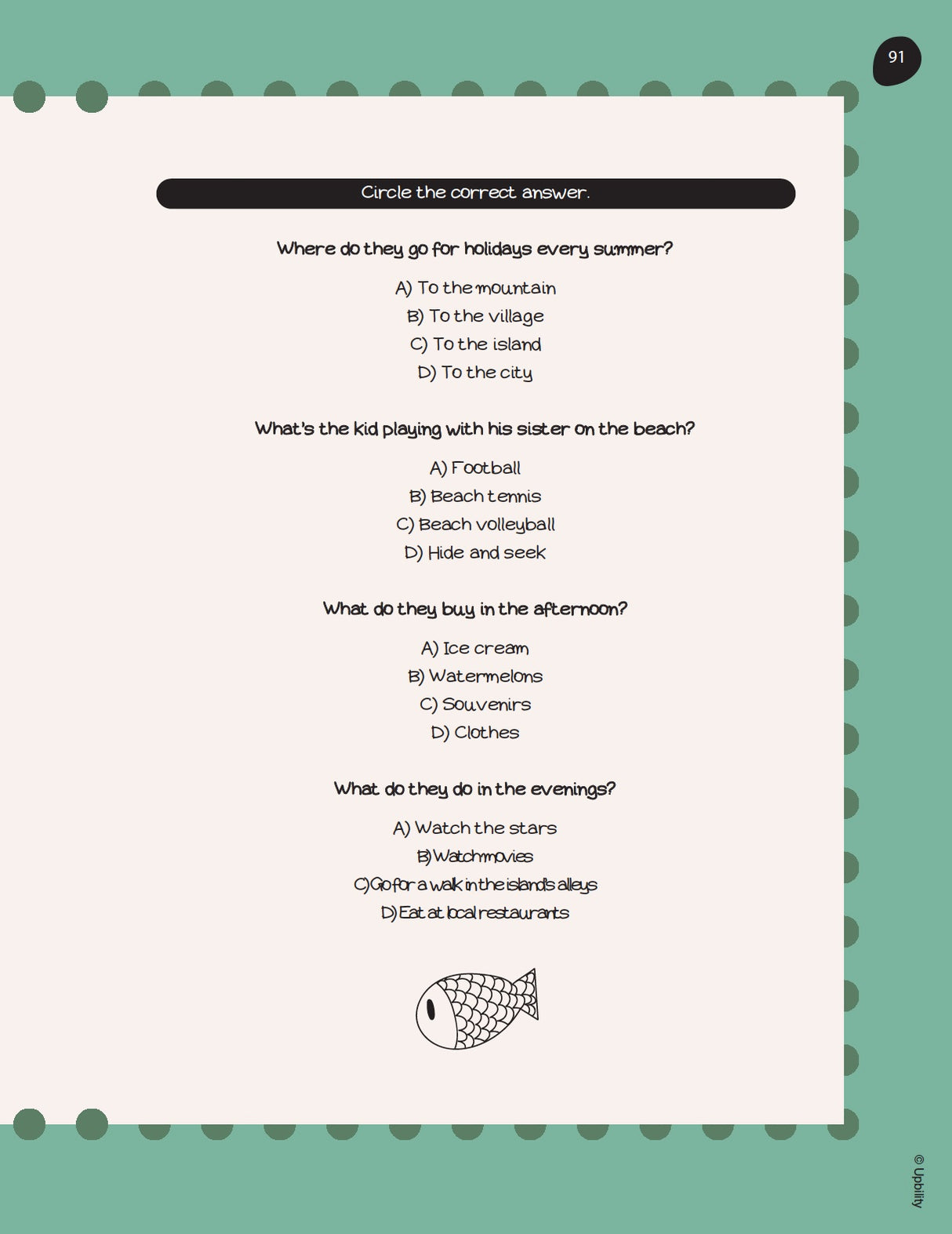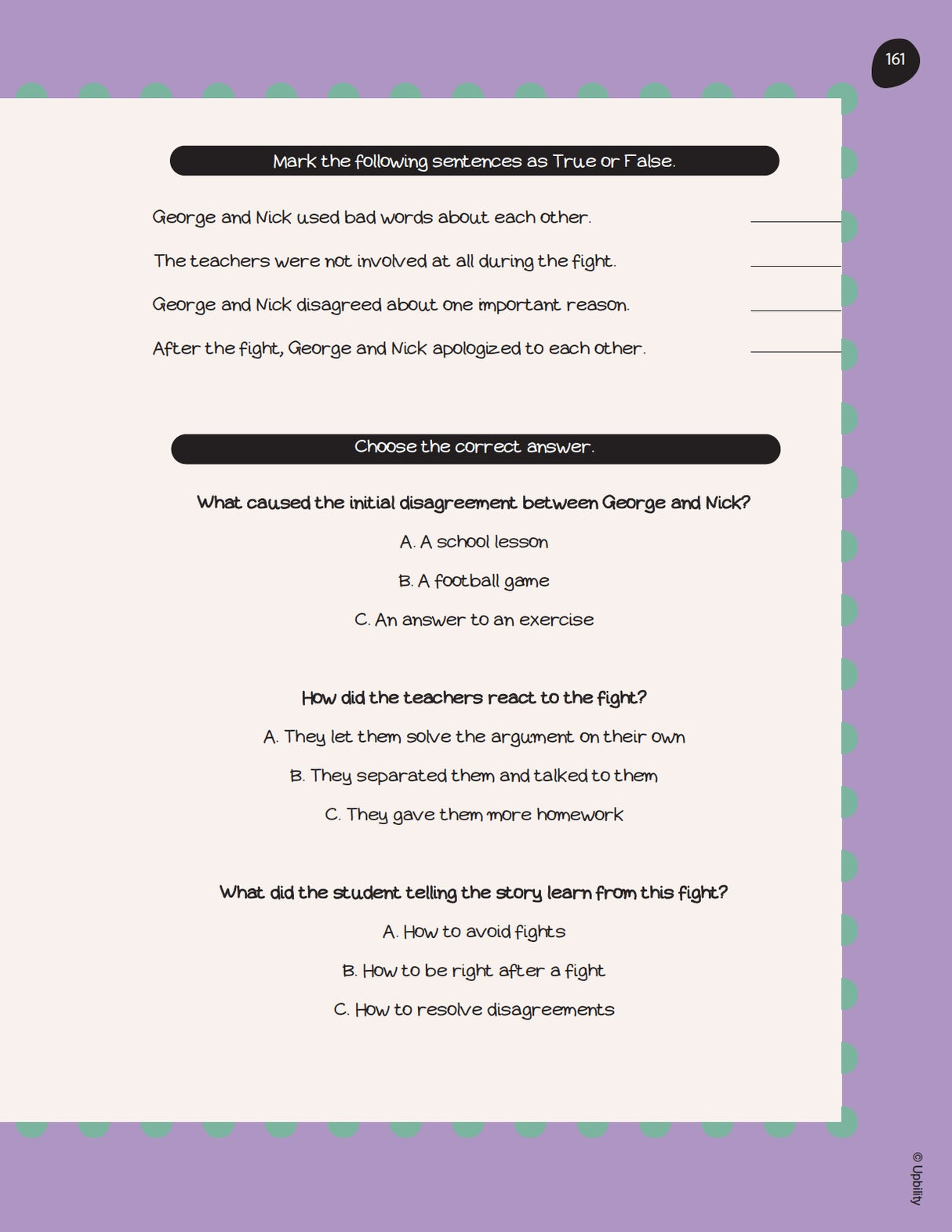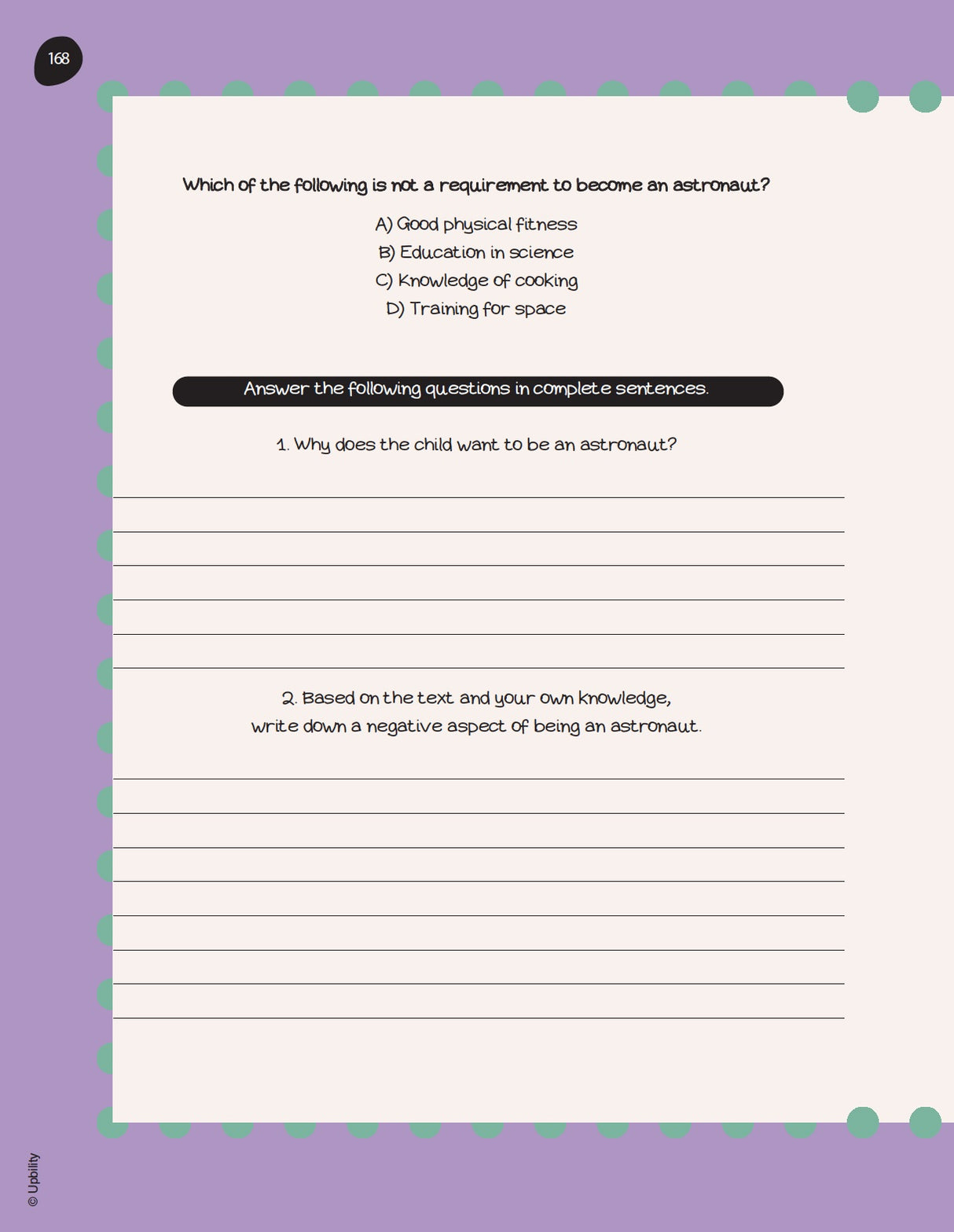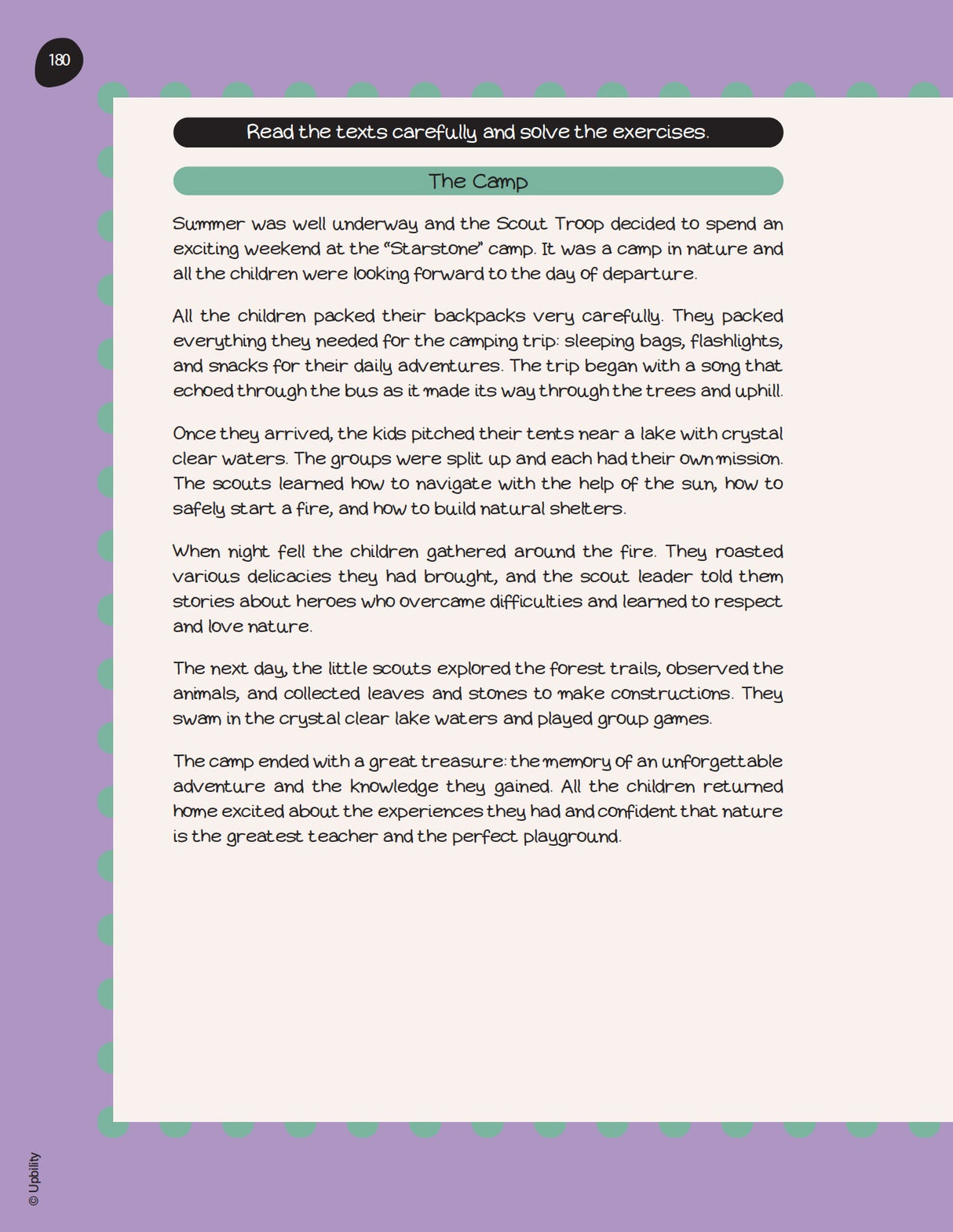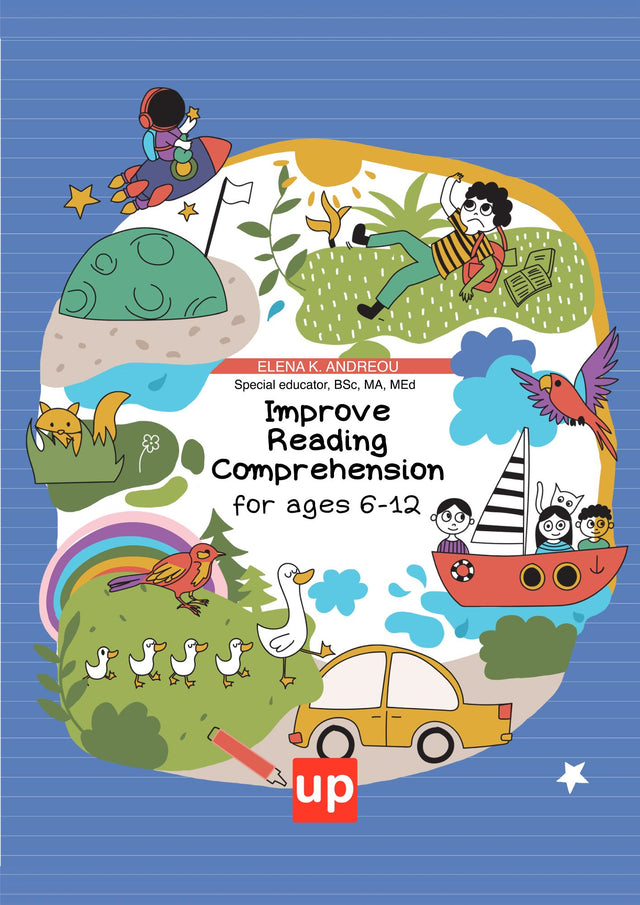Improve Reading Comprehension for ages 6-12
Available
Improve Reading Comprehension for ages 6-12 - is backordered and will ship as soon as it is back in stock.
Description
Description
A tool for enhancing reading comprehension
Age: 6+
Developing reading comprehension skills is essential to children, both for their school success and cognitive development. Teachers and parents must remember that developing reading comprehension skills does not happen overnight. It requires going through specific phases in an evolutionary manner that leaves space for improvement even after an individual reaches adulthood.
Reading comprehension skills development can be broken down into five phases:
- pre-reading phase,
- initial reading phase,
- practice phase,
- extensive reading phase, and
- comprehension phase.
“Improve Reading Comprehension for ages 6-12“ includes an extended collection of comprehension exercises divided into six difficulty levels for early to experienced readers. The initial exercises focus on comprehending simple sentences and showing children how to use written speech to represent messages, pictures, or ideas. As they progress, children must respond to open and close-ended questions after reading texts that become more complex as the difficulty level changes. That way, they improve their auditory comprehension, processing, and auditory.
You may also be interested in the book "Enhancing Reading Skills | Valparaíso".
Specifications
Specifications
-
Book format
-
SKU
-
Age
-
Number of pages
-
Dimensions
-
Author
-
Pagination
-
Illustration
-
Year of publication
Contents
Contents
Author
Author
Age
School-aged children
Author
Elena K. Andreou - Special Educator BSc, MA, MEd
Secure Payments
All major methods accepted — fully protected from checkout to delivery.

